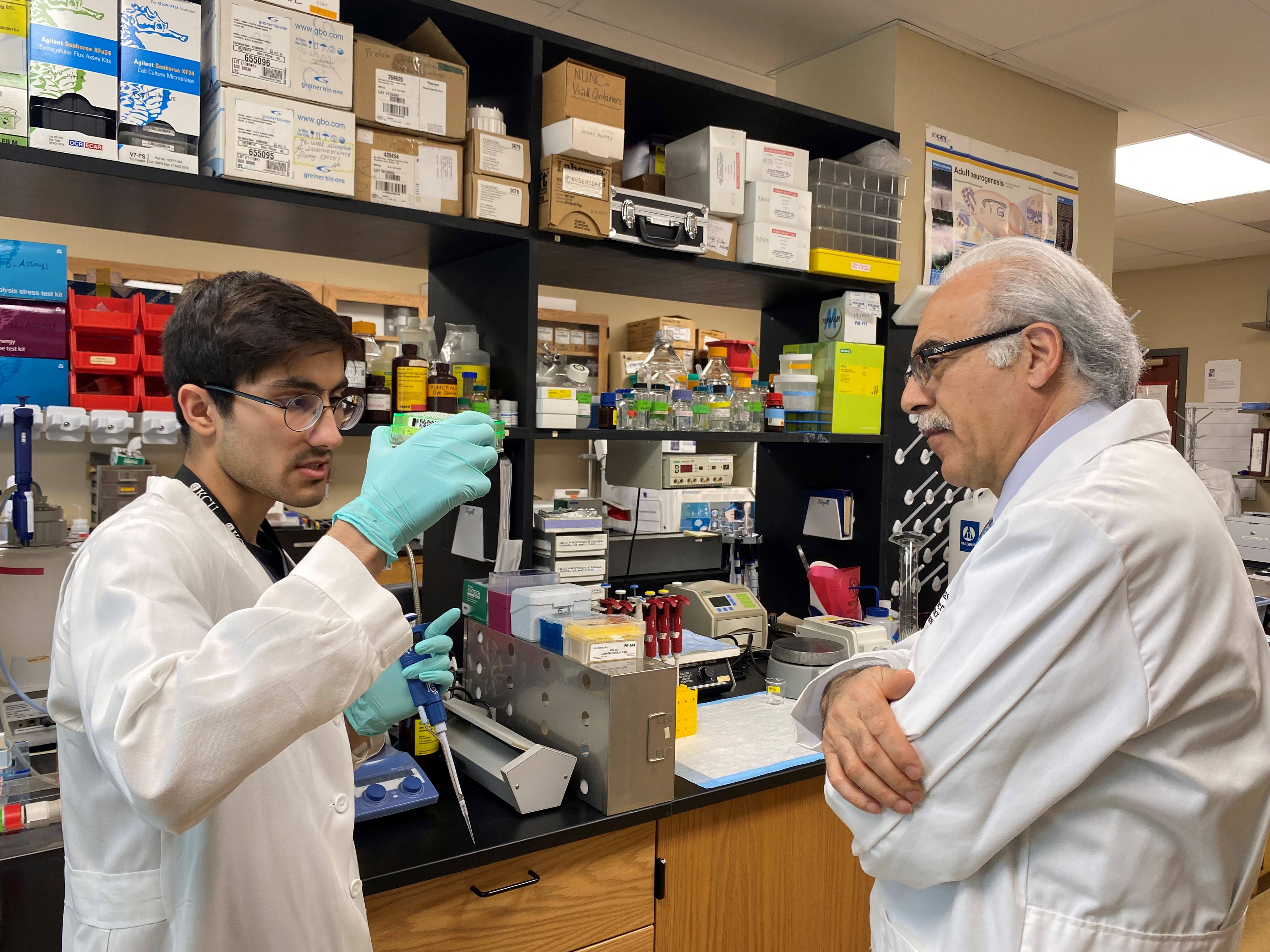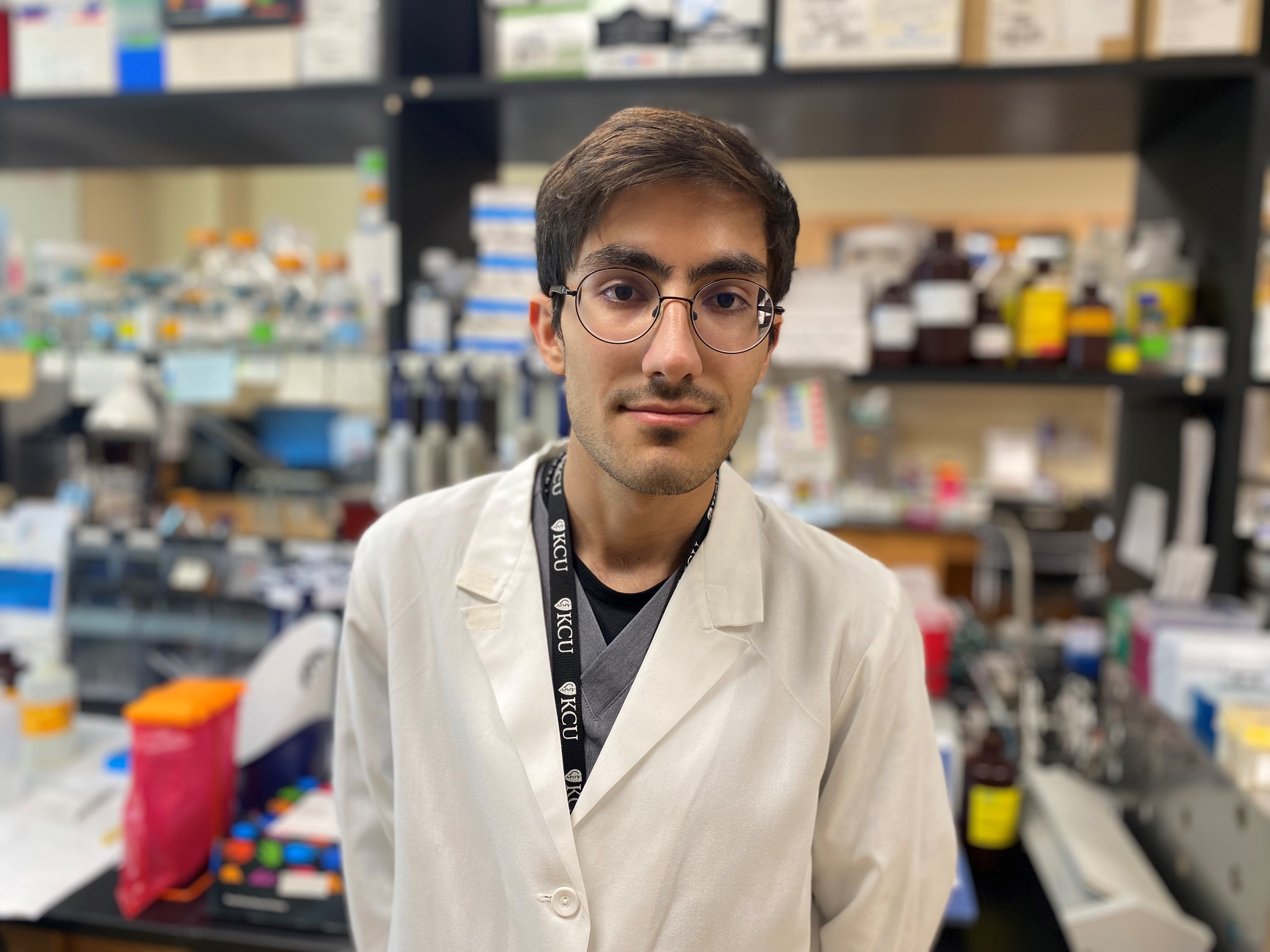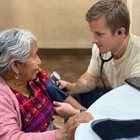Students who want to pursue a career as both a physician and as a scientist will find a warm welcome at Kansas City University (KCU). Just ask Mahan Hadjian. The third-year med student started working in the lab of Abdulbaki Agbas, PhD, MSc, professor of biosciences, as soon as he arrived at KCU’s College of Osteopathic Medicine. “I started off just sort of floating, helping out with whatever projects that I could, teaching other students—with gel electrophoresis, western blotting or protein quantification using various spectroscopic methods,” he said.
A fellowship in KCU’s summer research program inspired his interest in studying mitochondria, the powerhouse of the cell, and how it relates to neurodegenerative disease. “A lot of times, dysfunctional mitochondria lead to Alzheimer’s and Parkinson’s disease,” he said. “In Dr. Agbas’ lab we are able to monitor the changes in mitochondria over time over the disease progression. We want to eventually be able to develop different tests that can enable physicians to catch the diseases early and see if the prescribed treatment is working.”
Hadjian soon realized he wanted to not only become a doctor, but also a researcher who could understand the core of his patients’ disease. “I was a chemist and my undergrad program was very much geared toward graduate school. I am one of the few members of my group of friends who decided to go onto medical school after graduation. The summer research program got me thinking, why don’t I try to do both?”
After consulting with Dr. Agbas, Hadjian decided to take a gap year after he was offered a prestigious fellowship at the National Institutes of Health (NIH). “I will be working with Dr. Richard Youle. He does a lot of work with mitochondria, mitophagy, and autophagy in Parkinson’s disease. These are the cell recycling pathways which, if nonfunctional, could lead to problems like mitochondrial DNA leaking into the rest of the cell. Since mitochondria are originally foreign to our cells, the body essentially thinks it has been infected by a virus, prompting an autoimmune response. This is one of the fields blowing up in neurodegenerative disease studies.”
Hadjian believes a physician who understands what’s happening in the cell may be better able to treat the whole patient. “I’d like to take the basic principles that we are discovering, or understanding how these diseases work at the molecular level, and then be able to prototype either different treatments or detection strategies that eventually can be tested in clinical trials down the line and put to market to help the patient out.”
“He is a very special student,” Dr. Agbas noted. “Very unique. He is already contributing to the work of our lab along with teaching. He is teaching fellow students how to do research. I am very pleased he has the opportunity to take a year of bench work at the NIH.”
Hadjian notes that other students can follow his educational path as well. Especially at KCU.
“What I would like to find is a principal investigator like Dr. Agbas who is not necessarily always looking over your shoulder, but is always there when you need him. A lot of medical students worry about research. But what I would say to anyone considering a similar path, is reach out to the professors. They will be happy to sit down with you and include you in their research. Don’t be afraid of bench work. We have a good time here, even when we run into roadblocks.”





(0) Comments